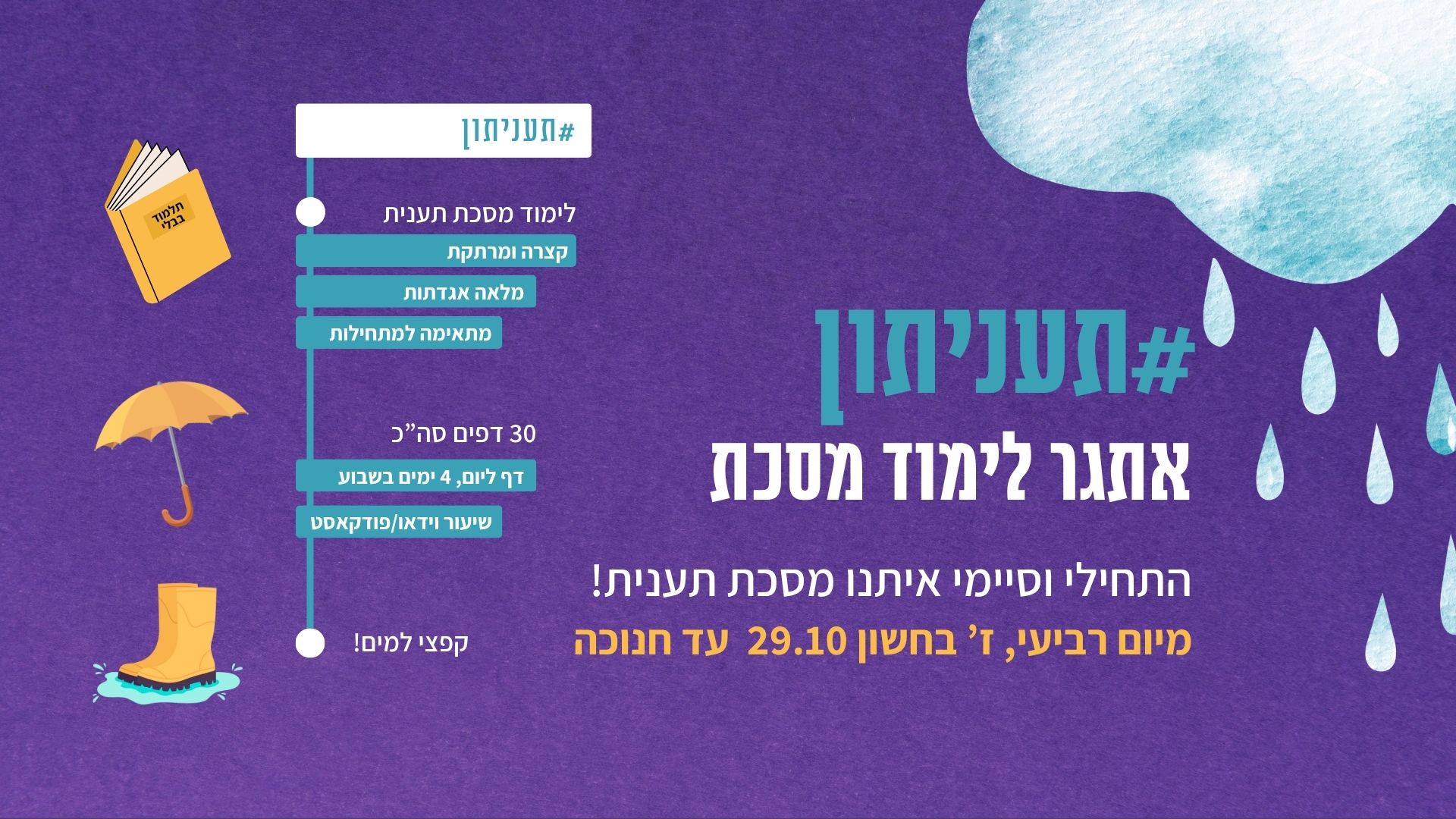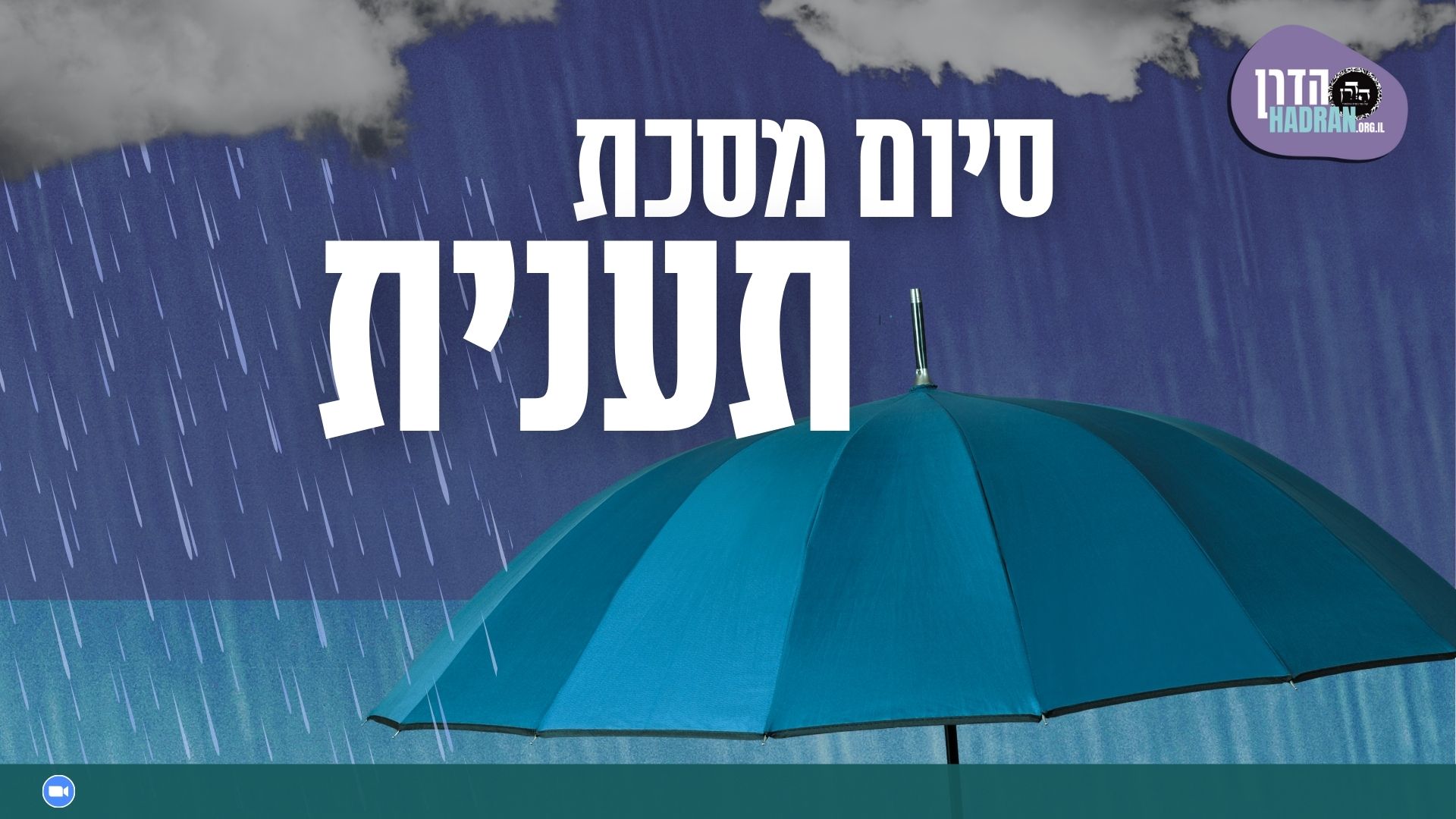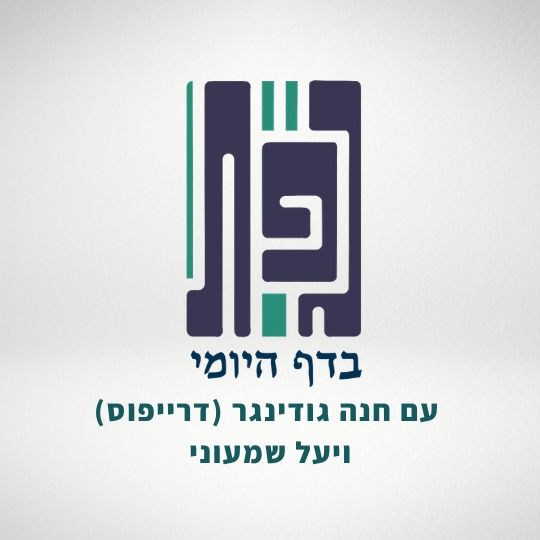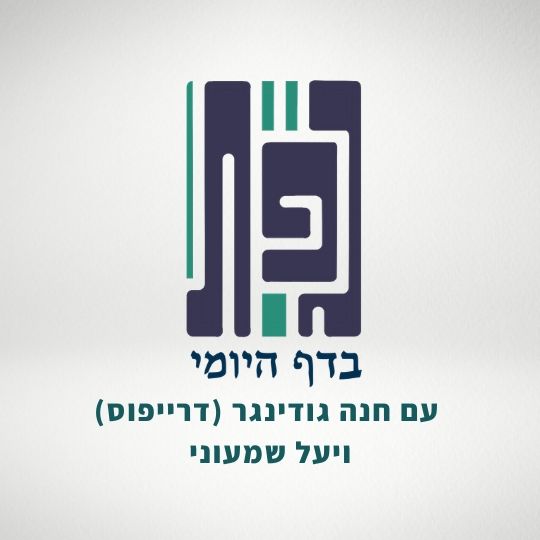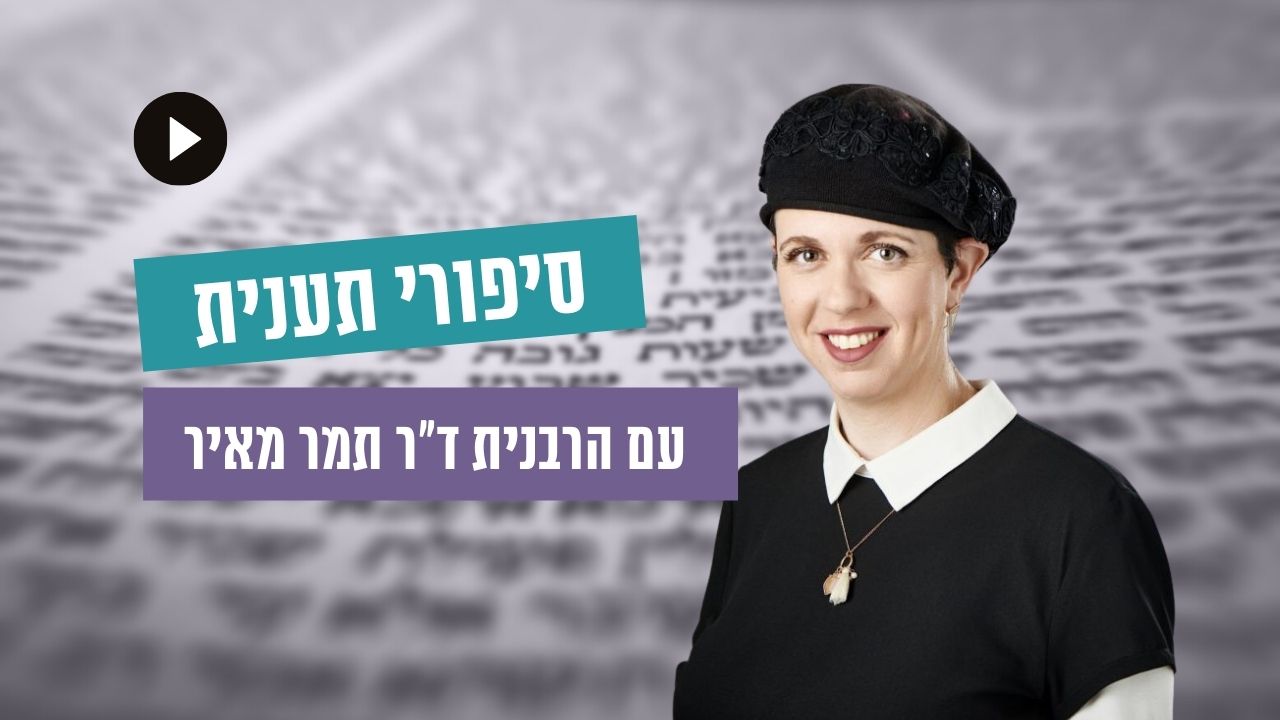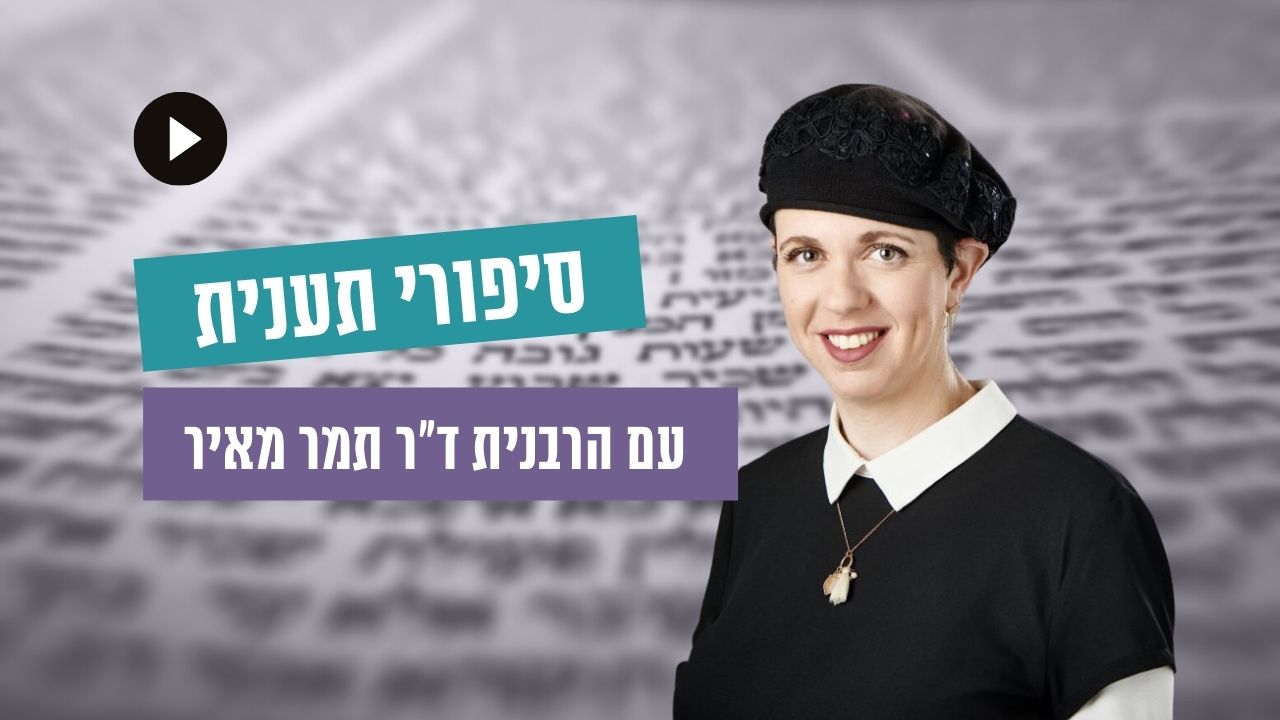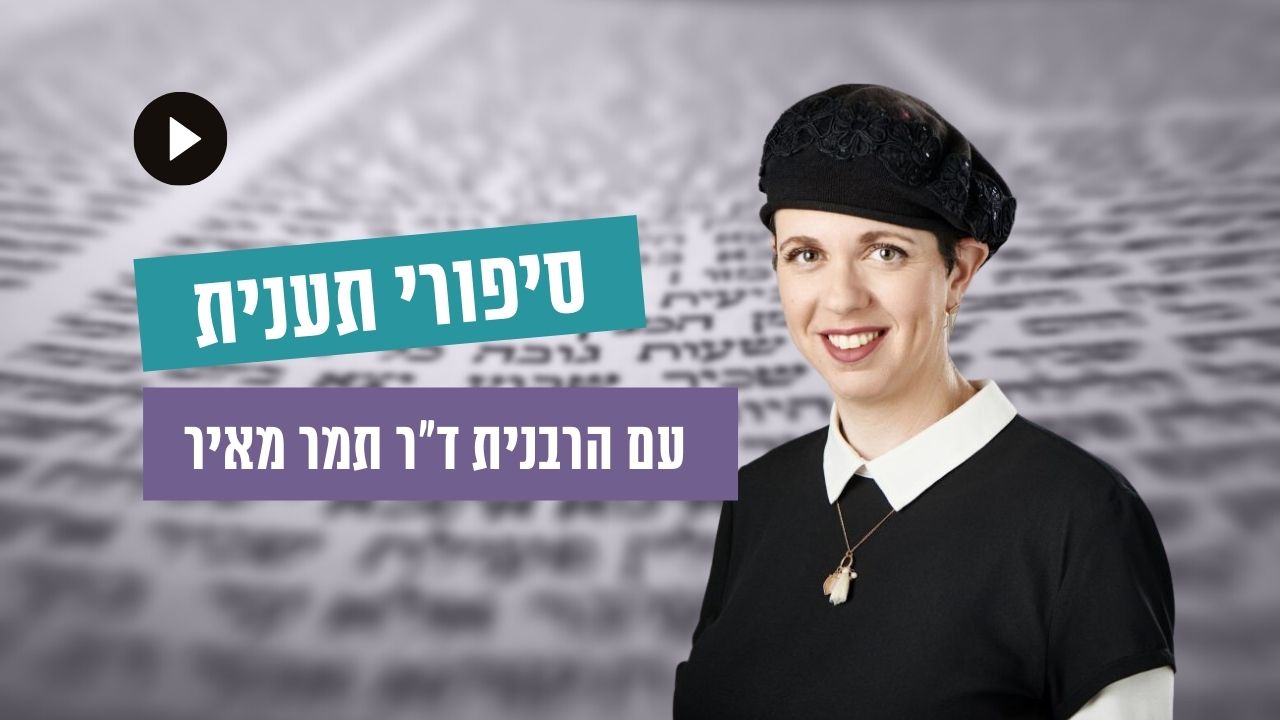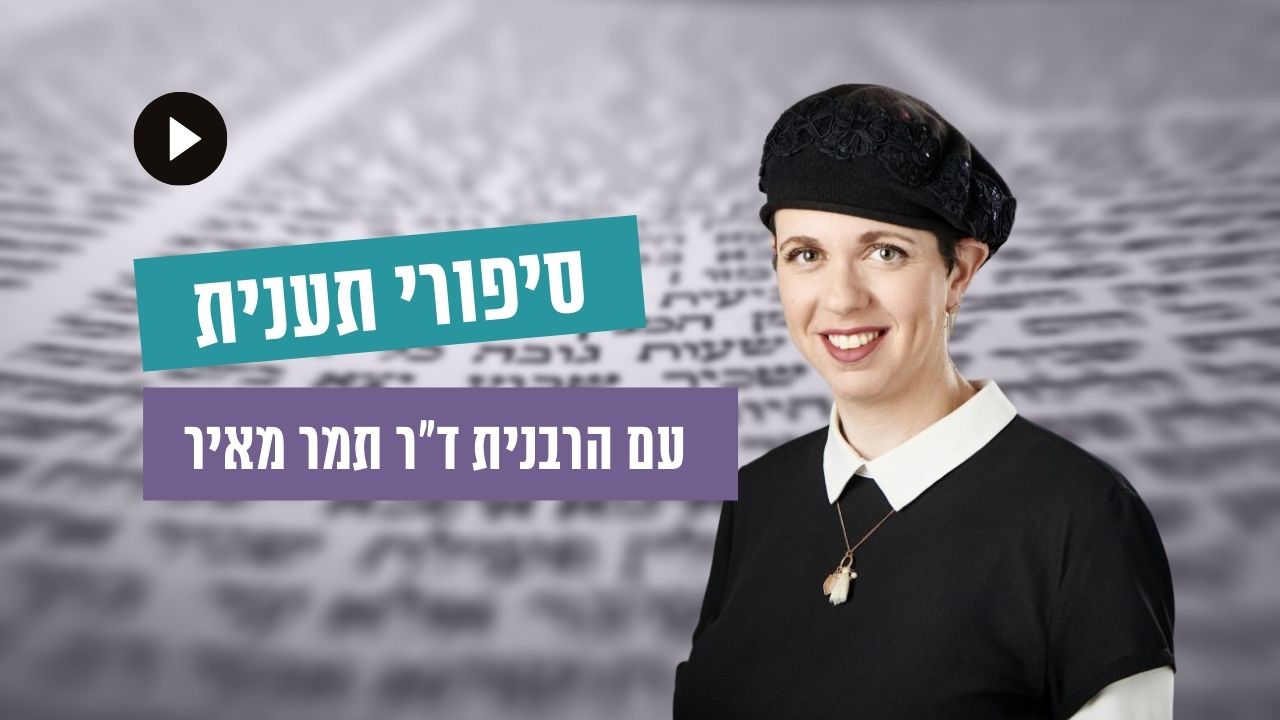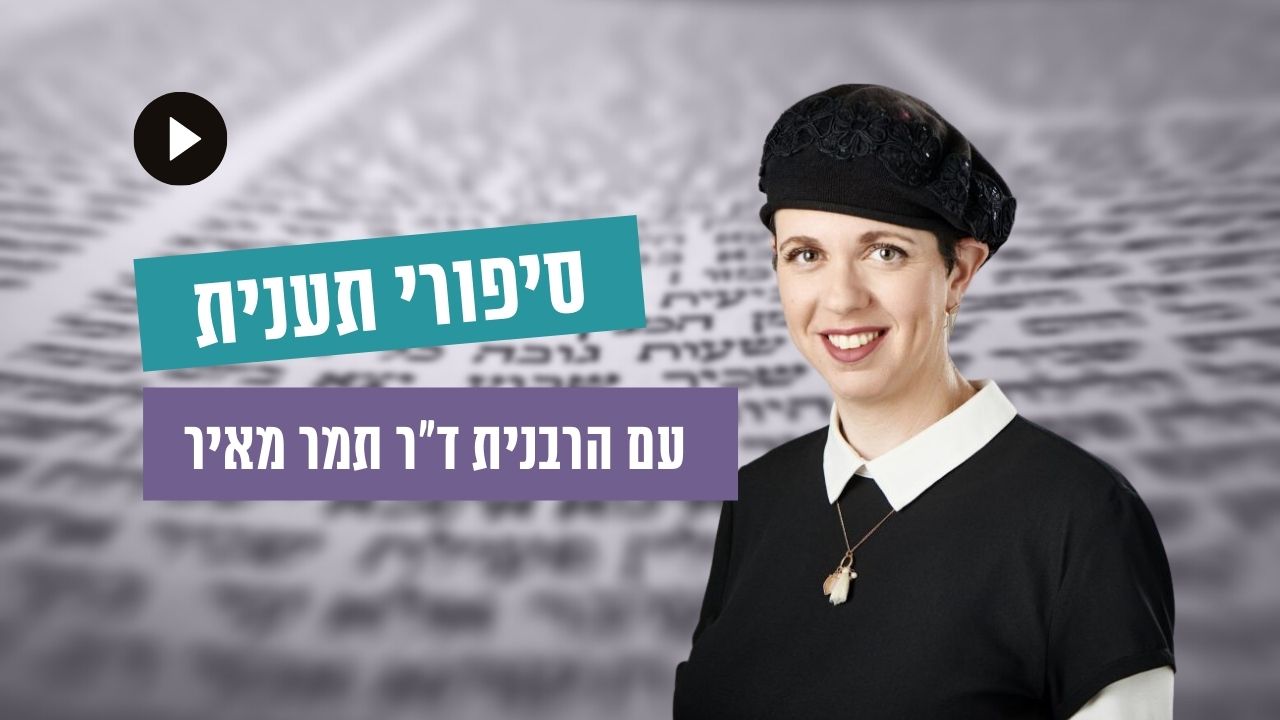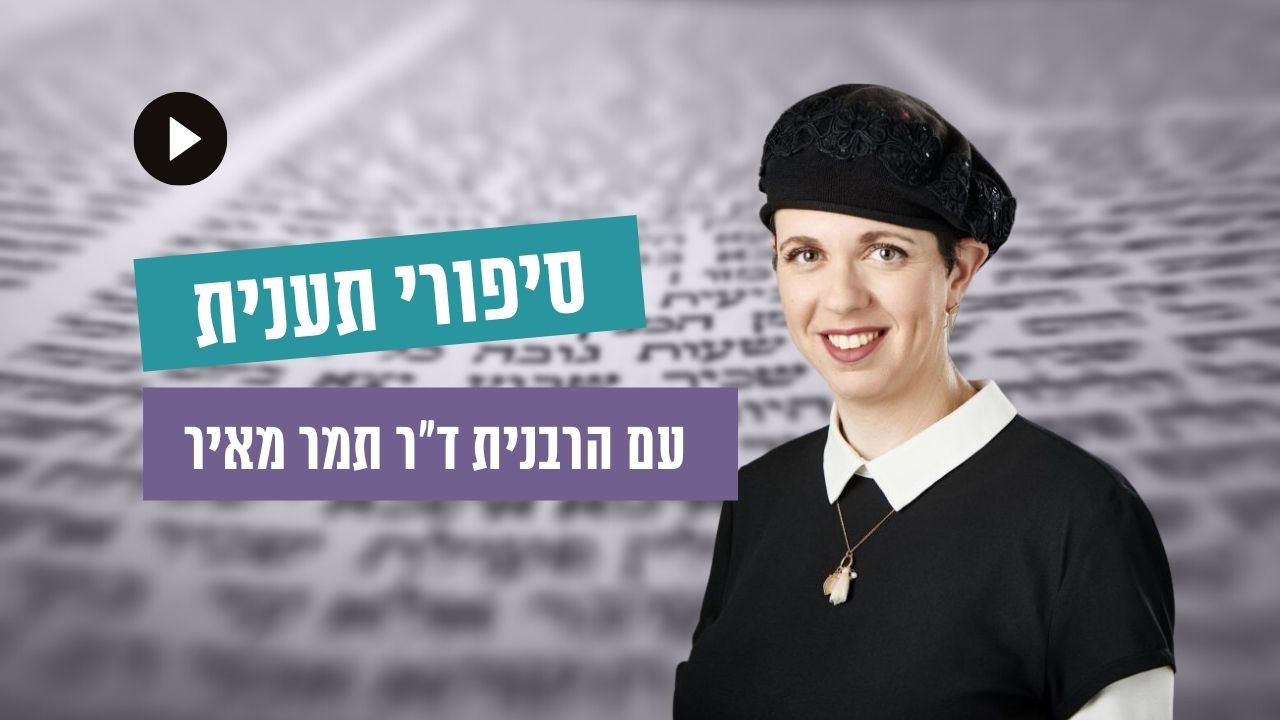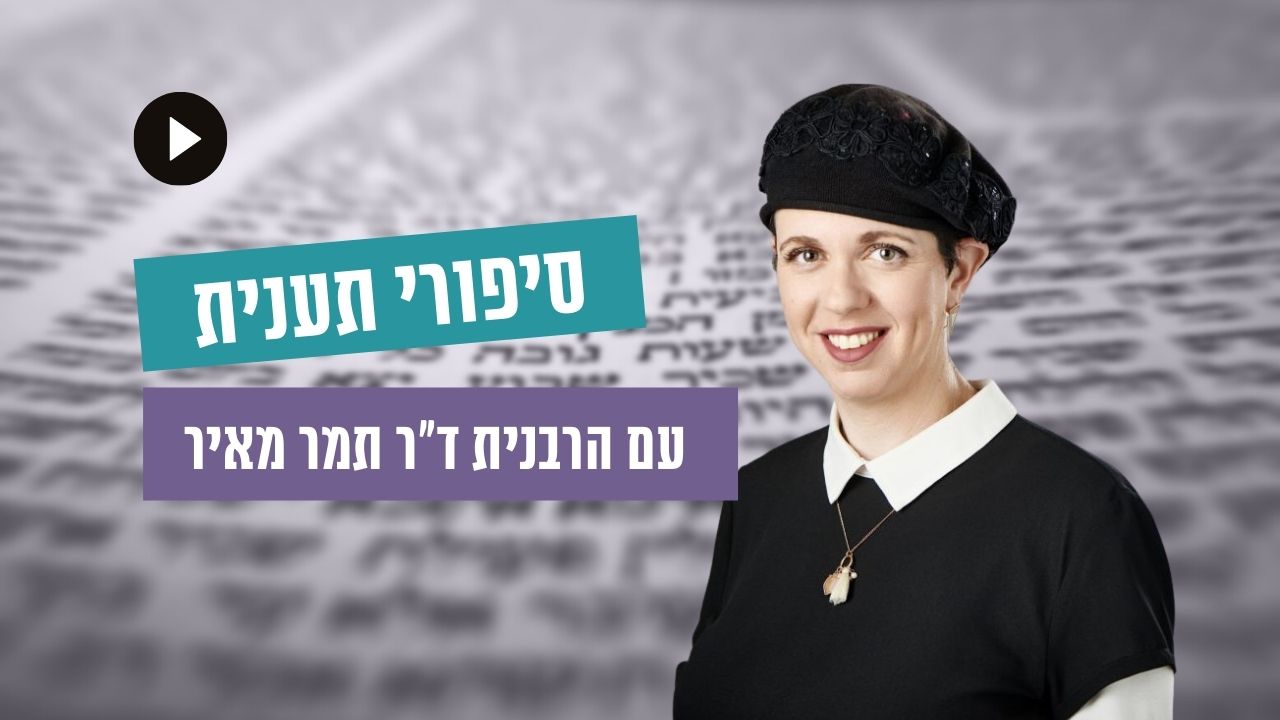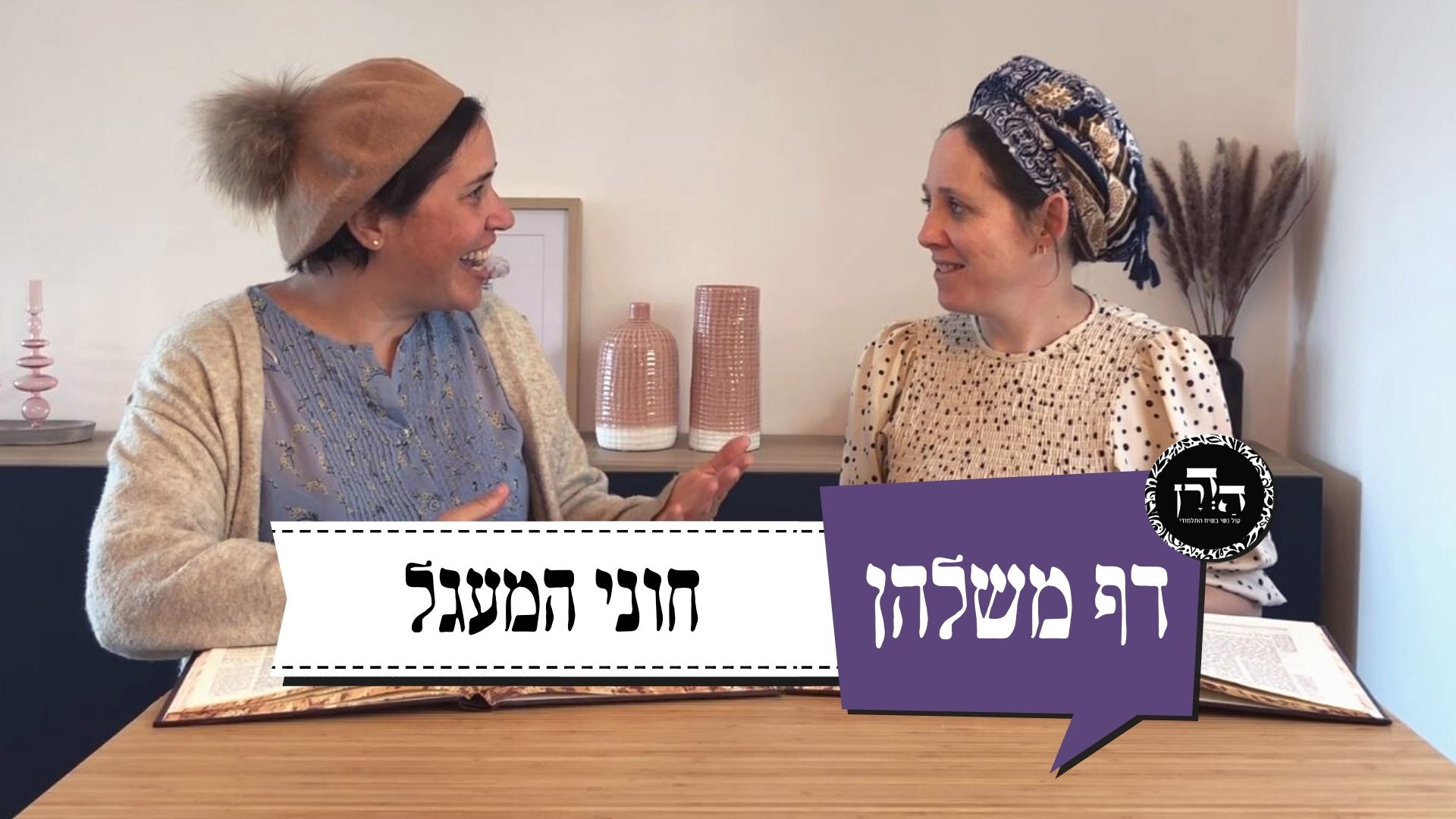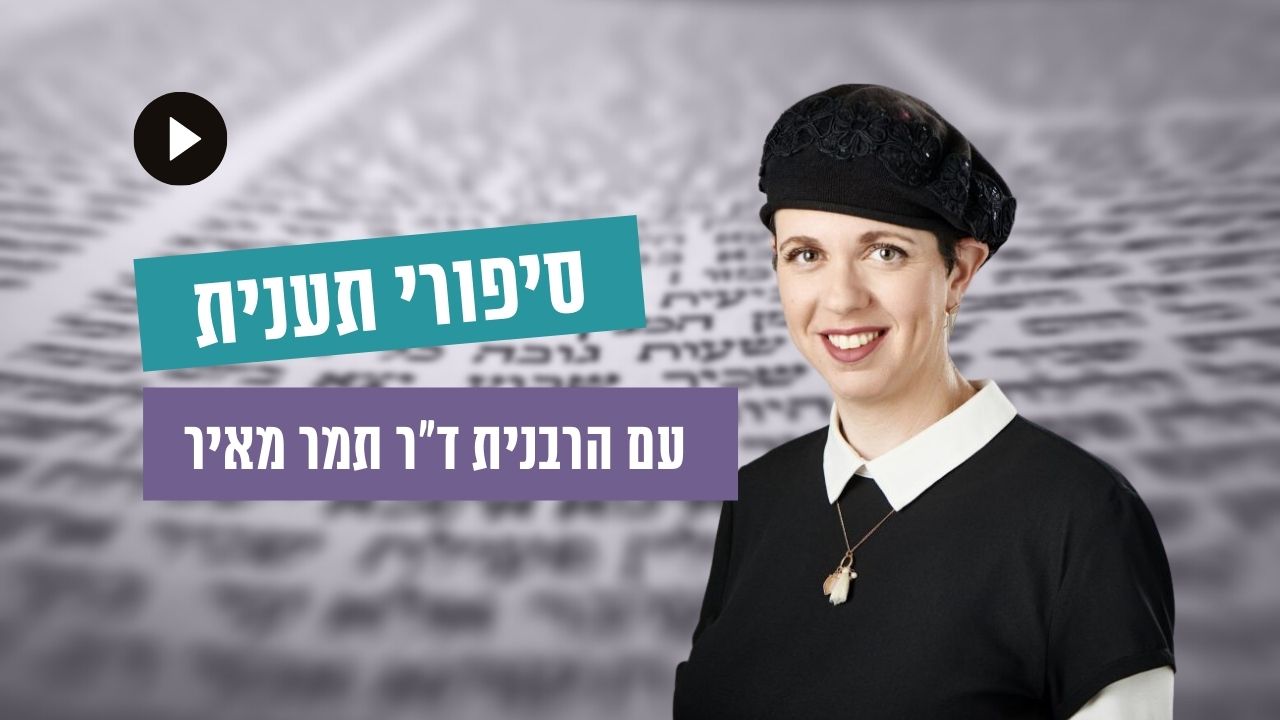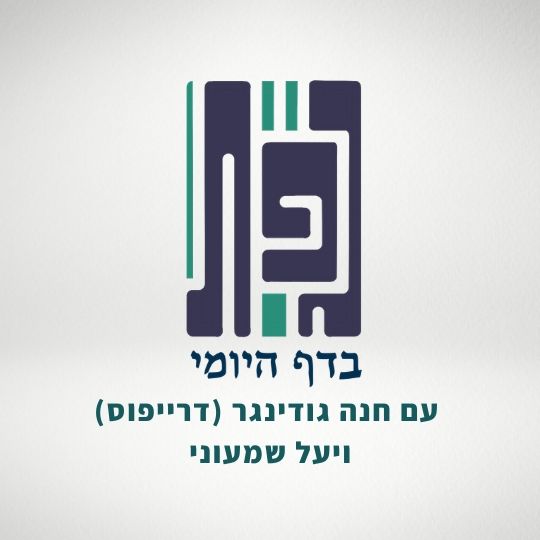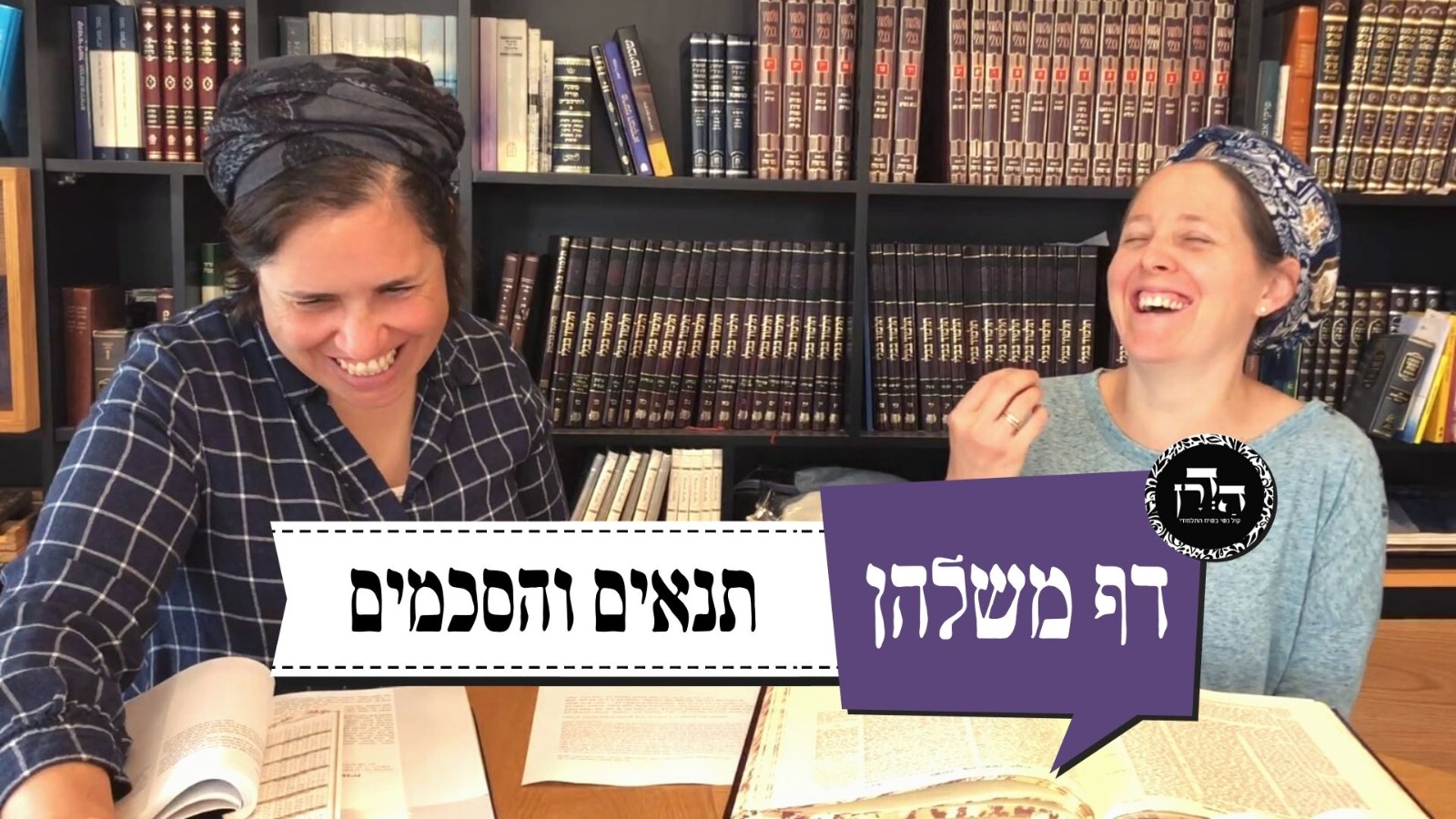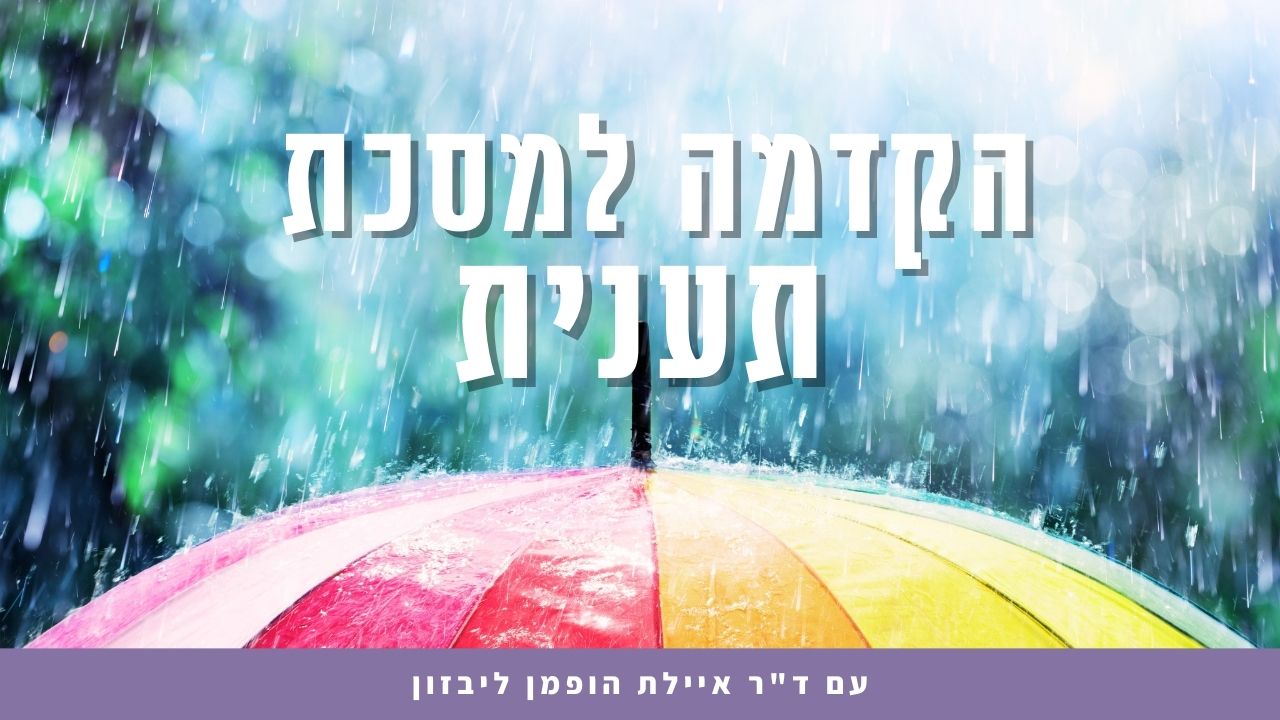הלימוד החודש מוקדש לרפואת פיליס הכט, גיטל פעשא בת מאשה רחל על ידי חברותיה הרבות שאוהבות ומעריכות אותה.
הלימוד השבוע מוקדש ע”י נירה פלדמן לע”נ פיי דרק.
הלימוד השבוע מוקדש ע”י נירה פלדמן לע”נ פיי דרק.
רוצה להקדיש שיעור?

תקציר
מספרים על רבי יוסי מוקרת – רבי יוסי בן רבי אבין היה תלמידו אך עזב אותו ללמוד אצל רב אשי כיוון שהוא נבהל ממנו מאחר שלא הראה רחמנות כלפי ילדיו. יום אחד כשר’ יוסי מיוקרת חזר הביתה מאוחר (כי היה עסוק במצווה) ולא השאיר אוכל לעבדיו, בנו התפלל לה’ שהפירות יבשילו מוקדם כדי להאכיל אותם. כששמע רבי יוסי מה עשה בנו, הוא כעס עליו שהטריח את ה’ להבשיל את הפירות לפני זמנם ואמר שכתוצאה מכך בנו ימות לפני זמנו. בתו הייתה יפה והיה גבר שהביט בה מבעד לגדר ואמר, "אם אני לא יכול להתחתן איתה, לפחות אני יכול להסתכל עליה.” רבי יוסי כעס על כך שהיא גורמת לייסורים של גברים ואמר לה לחזור לעפר. נס קרה עם חמורו – חמורו נשכר לאחרים ונשלח אליו בחזרה מדי יום עם כסף מהשכירות עליו. אבל אם היה יותר/פחות מדי כסף, החמור היה מסרב ללכת הביתה. אלעזר איש בירתא היה נותן את כל כספו לצדקה ועל כן, גבאי הצדקה התחבאו ממנו כדי שלא יתן להם כל כספו. יום אחד הוא הלך לשוק לקנות נדוניה לבתו וראה את גבאי הצדקה ונתן להם את כמעט כל הכסף. נס קרה מקצת הכסף שנותר אבל לא נתן למשפחתו ליהנות ממנו כיון שהגיע מנס הוא אמר שזה כהקדש. מספרים סיפורים שבהם הרבנים מתפללים לגשם ובכל זאת זה לא עוזר בהתחלה. רק לאחר שמתייאשים, מגיעים הגשמים. רבי אושעיא מאשים את בית הנשיא והעם על שהגשמים לא מגיעים. עבדי הנשיא כועסים עליו ומנסים לצער אותו. העם מגינים עליו, על אף שהוא נזף גם בהם. סיפורים נוספים מספרים על רבנים שמתפללים לגשם ותפילתם לא נענית אבל אז בא שילח ציבור ובזכותו מגיעים הגשמים. אילו מעשים הם עשו שבזכותם תפילותיהם התקבלו? תפילותיו של רבה לגשם אינן נענות והוא תוהה מדוע רב יהודה הצליח להביא גשם כל כך בקלות והוא לא. רבה גם לא הצליח להביא גשם אפילו אחרי שהאנשים צמו כל היום אז הוא הרחיב את הצום ללילה גם ומחלום שמישהו חולם, הוא מבין שהגיע עת הרצון והוא מתפלל והגשמים באים. רבא נתן מלקות למי ששכב עם אישה לא יהודיה והאדם מת מהמלקות. זה הרגיז את שבור מלכא, השליט הפרסי, והוא רצה להעניש את רבא. אבל אמו, איפרה הרמיז, מזהירה אותו שלא יתחיל עם היהודים כי האלוהים שלהם תמיד עונה לתפילותיהם. לפי הצעת אמו הוא בודק לראות האם זה באמת נכון. רבי חנינא בן דוסא מבקש מהקב”ה שיפסיק את הגשם כדי שיוכל להגיע הביתה בשלום, למרות ששאר העולם זקוק לגשם. כשהוא מגיע הביתה, הוא מבקש שיביא את הגשמים עכשיו לכל העולם שצריכים גשם והוא נענה. רב יוסף מציין את כוח תפילותיו של ר’ חנינא בן דוסא כי הם גברו על תפילת הכהן הגדול ביום הכיפורים כאשר הוא מבקש שה’ לא ישמע לתפילות עוברי דרכים. למרות שרבי חנינא בן דוסא הביא פרנסה לאחרים (על ידי הבאת הגשמים), הוא עצמו חי בעוני.
כלים
הלימוד החודש מוקדש לרפואת פיליס הכט, גיטל פעשא בת מאשה רחל על ידי חברותיה הרבות שאוהבות ומעריכות אותה.
הלימוד השבוע מוקדש ע”י נירה פלדמן לע”נ פיי דרק.
הלימוד השבוע מוקדש ע”י נירה פלדמן לע”נ פיי דרק.
כלים
העמקה
רוצה להבין מה באמת קורה מתחת לפני השטח של הסוגיה?
שיעורים, פודקאסטים והרחבות של מיטב המורות שלנו יפתחו לך עוד זוויות וכיווני חשיבה.
חדשה בלימוד הגמרא?
זה הדף הראשון שלך? איזו התרגשות עצומה! יש לנו בדיוק את התכנים והכלים שיעזרו לך לעשות את הצעדים הראשונים ללמידה בקצב וברמה שלך, כך תוכלי להרגיש בנוח גם בתוך הסוגיות המורכבות ומאתגרות.
פסיפס הלומדות שלנו
גלי את קהילת הלומדות שלנו, מגוון נשים, רקעים וסיפורים. כולן חלק מתנועה ומסע מרגש ועוצמתי.
תענית כד
יוֹמָא חַד שַׁמְעֵיהּ דְּקָא גָרֵיס, אָמַר שְׁמוּאֵל: הַשּׁוֹלֶה דָּג מִן הַיָּם בְּשַׁבָּת, כֵּיוָן שֶׁיָּבַשׁ בּוֹ כְּסֶלַע — חַיָּיב. אֲמַר לֵיהּ: וְלֵימָא מָר וּבֵין סְנַפִּירָיו! אֲמַר לֵיהּ: וְלָא סָבַר לַהּ מָר דְּהָהִיא רַבִּי יוֹסֵי בֶּן רַבִּי אָבִין אַמְרַהּ? אֲמַר לֵיהּ: אֲנָא נִיהוּ.
One day Rabbi Yosei bar Avin heard Rav Ashi studying and reciting the following statement. Shmuel said: With regard to one who removes a fish from the sea on Shabbat, when an area on the skin of the fish the size of a sela coin has dried up, he is liable for violating the prohibition against slaughtering an animal on Shabbat. A fish in that condition cannot survive, and therefore one who removed it from the water is liable for killing it. Rabbi Yosei bar Avin said to Rav Ashi: And let the Master say that this is the case provided that the skin that dried is between its fins. Rav Ashi said to him: And doesn’t the Master maintain that Rabbi Yosei ben Rabbi Avin said this ruling? Why didn’t you state it in his name? Rabbi Yosei bar Avin said to him: I am he.
אֲמַר לֵיהּ: וְלָאו קַמֵּיהּ דְּרַבִּי יוֹסֵי דְּמִן יוֹקֶרֶת הֲוָה שְׁכִיחַ מָר? אֲמַר לֵיהּ: הִין. אֲמַר לֵיהּ: וּמַאי טַעְמָא שַׁבְקֵיהּ מָר וַאֲתָא הָכָא? אֲמַר לֵיהּ: גַּבְרָא דְּעַל בְּרֵיהּ וְעַל בְּרַתֵּיה לָא חָס, עֲלַי דִּידִי הֵיכִי חָיֵיס?!
Rav Ashi said to him: And didn’t the Master sit before and frequent the study hall of Rabbi Yosei from Yokrat? Rabbi Yosei bar Avin said to him: Yes. Rav Ashi said to him: And what is the reason that the Master left him and came here? Rabbi Yosei bar Avin said to him: I was concerned and departed because he is so severe and unforgiving. He is a man who has no mercy on his own son, and no mercy on his daughter. How, then, could he have mercy on me?
בְּרֵיהּ מַאי הִיא? יוֹמָא חַד הֲווֹ אֲגִרִי לֵיהּ אֲגִירֵי בְּדַבְרָא, נְגַהּ לְהוּ וְלָא אַיְיתִי לְהוּ רִיפְתָּא, אֲמַרוּ לֵיהּ לִבְרֵיהּ: כָּפֵינַן! הֲווֹ יָתְבִי תּוּתֵי תְּאֵינְתָּא, אֲמַר: תְּאֵנָה, תְּאֵנָה! הוֹצִיאִי פֵּירוֹתַיִךְ, וְיֹאכְלוּ פּוֹעֲלֵי אַבָּא. אַפִּיקָא וַאֲכַלוּ.
The Gemara asks: What is the incident involving his son? One day Rabbi Yosei from Yokrat hired day laborers to work his field. It grew late and he did not bring them food. The workers said to the son of Rabbi Yosei from Yokrat: We are starving. They were sitting under a fig tree, so the son said: Fig tree, fig tree. Yield your fruits, so that my father’s workers may eat. The fig tree yielded fruit, and they ate.
אַדְּהָכִי וְהָכִי אֲתָא אֲבוּהּ אֲמַר לְהוּ: לָא תִּינַּקְטוּ בְּדַעְתַּיְיכוּ, דְּהַאי דִּנְגַהְנָא, אַמִּצְוָה טָרַחְנָא, וְעַד הַשְׁתָּא הוּא דְּסַגַּאי. אֲמַרוּ לֵיהּ: רַחֲמָנָא לַישְׂבְּעָךְ כִּי הֵיכִי דְּאַשְׂבְּעַן בְּרָךְ. אֲמַר לְהוּ: מֵהֵיכָא? אֲמַרוּ: הָכִי וְהָכִי הֲוָה מַעֲשֶׂה. אָמַר לוֹ: בְּנִי, אַתָּה הִטְרַחְתָּ אֶת קוֹנְךָ לְהוֹצִיא תְּאֵנָה פֵּירוֹתֶיהָ שֶׁלֹּא בִּזְמַנָּהּ — יֵאָסֵף שֶׁלֹּא בִּזְמַנּוֹ.
In the meantime, his father came and said to the workers: Do not be angry with me for being late, as I was engaged in a mitzva, and until just now I was traveling for that purpose and could not get here any sooner. They said to him: May the Merciful One satisfy you just as your son satisfied us and gave us food. He said to them: From where did he find food to give you? They said: Such-and-such an incident occurred. Rabbi Yosei from Yokrat said to his son: My son, you troubled your Creator to cause the fig to yield its fruit not in its proper time, so too, you will die young. And indeed, his son died before his time.
בְּרַתֵּיה מַאי הִיא? הַוְיָא לֵיהּ בְּרַתָּא בַּעֲלַת יוֹפִי, יוֹמָא חַד חַזְיֵאּ לְהָהוּא גַּבְרָא דַּהֲוָה כָּרֵיא בְּהוּצָא וְקָא חָזֵי לַהּ. אָמַר לוֹ: מַאי הַאי? אֲמַר לֵיהּ: רַבִּי, אִם לְלוֹקְחָהּ לֹא זָכִיתִי — לִרְאוֹתָהּ לֹא אֶזְכֶּה? אֲמַר לַהּ: בִּתִּי, קָא מְצַעֲרַתְּ לְהוּ לִבְרִיָּיתָא, שׁוּבִי לְעַפְרִיךְ וְאַל יִכָּשְׁלוּ בִּיךְ בְּנֵי אָדָם.
The Gemara asks: What is the incident involving his daughter? He had a very beautiful daughter. One day Rabbi Yosei from Yokrat saw a certain man piercing a hole in the hedge surrounding his property and looking at his daughter. Rabbi Yosei said to him: What is this? The man said to him: My teacher, if I have not merited taking her in marriage, shall I not at least merit to look at her? Rabbi Yosei said to her: My daughter, you are causing people distress. Return to your dust, and let people no longer stumble into sin due to you.
הַוְיָא לֵיהּ הָהוּא חֲמָרָא, כְּדַהֲווֹ אָגְרִי לַהּ כׇּל יוֹמָא, לְאוּרְתָּא הֲווֹ מְשַׁדְּרִי לֵהּ אַגְרַהּ אַגַּבַּהּ, וְאָתְיָא לְבֵי מָרַהּ, וְאִי טָפוּ לַהּ אוֹ בָּצְרִי לַהּ — לָא אָתְיָא. יוֹמָא חַד אִינְּשׁוֹ זוּגָא דְסַנְדָּלֵי עֲלַהּ, וְלָא אֲזַלָה עַד דְּשַׁקְלוּנְהוּ מִינַּהּ, וַהֲדַר אֲזַלָה.
§ The Gemara relates another story involving Rabbi Yosei from Yokrat. He had a certain donkey that people hired each day for work. In the evening they would send it back with the money for its hire on its back, and the animal would go to its owner’s house. But if they added or subtracted from the appropriate sum, the donkey would not go. One day someone forgot a pair of sandals on the donkey, and it did not move until they removed the sandals from its back, after which it went off.
אֶלְעָזָר אִישׁ בִּירְתָּא, כַּד הֲווֹ חָזוּ לֵיהּ גַּבָּאֵי צְדָקָה הֲווֹ טָשׁוּ מִינֵּיהּ, דְּכׇל מַאי דַּהֲוָה גַּבֵּיהּ יָהֵיב לְהוּ. יוֹמָא חַד הֲוָה סָלֵיק לְשׁוּקָא לְמִיזְבַּן נְדוּנְיָא לִבְרַתֵּיהּ, חַזְיוּהּ גַּבָּאֵי צְדָקָה, טְשׁוֹ מִינֵּיהּ.
The Gemara cites more stories about miracles that occurred to righteous individuals. Whenever the charity collectors would see Elazar of the village of Birta, they would hide from him, as any money Elazar had with him he would give them, and they did not want to take all his property. One day, Elazar went to the market to purchase what he needed for his daughter’s dowry. The charity collectors saw him and hid from him.
אֲזַל וּרְהַט בָּתְרַיְיהוּ, אֲמַר לְהוּ: אַשְׁבַּעְתִּיכוּ בְּמַאי עָסְקִיתוּ? אֲמַרוּ לֵיהּ: בְּיָתוֹם וִיתוֹמָה. אָמַר לָהֶן: הָעֲבוֹדָה שֶׁהֵן קוֹדְמִין לְבִתִּי. שְׁקַל כֹּל דַּהֲוָה בַּהֲדֵיהּ וִיהַב לְהוּ. פָּשׁ לֵיהּ חַד זוּזָא, זְבַן לֵיהּ חִיטֵּי, וְאַסֵּיק שַׁדְיֵיהּ בַּאֲכַלְבָּא.
He went and ran after them, saying to them: I adjure you, tell me, in what mitzva are you engaged? They said to him: We are collecting money for the wedding of an orphan boy and an orphan girl. He said to them: I swear by the Temple service that they take precedence over my daughter. He took everything he had with him and gave it to them. He was left with one single dinar, with which he bought himself wheat, and he then ascended to his house and threw it into the granary.
אֲתַאי דְּבֵיתְהוּ אֲמַרָה לַהּ לִבְרַתֵּיהּ: מַאי אַיְיתִי אֲבוּךְ? אֲמַרָה לָהּ: כׇּל מָה דְּאַיְיתִי, בַּאֲכַלְבָּא שְׁדִיתֵיהּ. אָתְיָא לְמִיפְתַּח בָּבָא דַאֲכַלְבָּא, חֲזָת אֲכַלְבָּא דְּמַלְיָא חִיטֵּי וְקָא נָפְקָא בְּצִינּוֹרָא דְּדַשָּׁא, וְלָא מִיפְּתַח בָּבָא מֵחִיטֵּי. אֲזַלָא בְּרַתֵּיה לְבֵי מִדְרְשָׁא, אֲמַרָה לֵיהּ: בֹּא וּרְאֵה מָה עָשָׂה לְךָ אוֹהַבְךָ! אֲמַר לַהּ: הָעֲבוֹדָה, הֲרֵי הֵן הֶקְדֵּשׁ עָלַיִךְ, וְאֵין לָךְ בָּהֶן אֶלָּא כְּאֶחָד מֵעֲנִיֵּי יִשְׂרָאֵל.
Elazar’s wife came and said to her daughter: What has your father brought? She said to her mother: Whatever he brought he threw into the granary. She went to open the door of the granary, and saw that the granary was full of wheat, so much so that it was coming out through the doorknob, and the door would not open due to the wheat. The granary had miraculously been completely filled. Elazar’s daughter went to the study hall and said to her father: Come and see what He Who loves You, the Almighty, has performed for you. He said to her: I swear by the Temple service, as far as you are concerned this wheat is consecrated property, and you have a share in it only as one of the poor Jews. He said this because he did not want to benefit from a miracle.
רַבִּי יְהוּדָה נְשִׂיאָה גְּזַר תַּעֲנִיתָא, בְּעָא רַחֲמֵי וְלָא אֲתָא מִיטְרָא. אָמַר: כַּמָּה אִיכָּא מִשְּׁמוּאֵל הָרָמָתִי לִיהוּדָה בֶּן גַּמְלִיאֵל! אוֹי לוֹ לַדּוֹר שֶׁכֵּן נִתְקַע, אוֹי לוֹ לְמִי שֶׁעָלְתָה בְּיָמָיו כָּךְ! חֲלַשׁ דַּעְתֵּיהּ וַאֲתָא מִיטְרָא.
The Gemara returns to the topic of fasting for rain. Rabbi Yehuda Nesia decreed a fast and prayed for mercy, but rain did not come. He said, lamenting: How great is the difference between the prophet Samuel of Rama, for whom rain fell even when he prayed for it in summer, and myself, Yehuda ben Gamliel. Woe to the generation that is stuck with this leadership; woe to him in whose days this has occurred. He grew upset, and rain came.
דְּבֵי נְשִׂיאָה גְּזַר תַּעֲנִיתָא, וְלָא אוֹדְעִינְהוּ לְרַבִּי יוֹחָנָן וּלְרֵישׁ לָקִישׁ. לְצַפְרָא אוֹדְעִינְהוּ. אֲמַר לֵיהּ רֵישׁ לָקִישׁ לְרַבִּי יוֹחָנָן: הָא לָא קַבֵּילְנָא עֲלַן מֵאוּרְתָּא! אָמַר לֵיהּ: אֲנַן בָּתְרַיְיהוּ גְּרִרִינַן.
The Gemara relates another story involving a Nasi’s decree of a fast for rain. In the house of the Nasi a fast was declared, but they didn’t inform Rabbi Yoḥanan and Reish Lakish of the fast the day before. In the morning they informed them. Reish Lakish said to Rabbi Yoḥanan: What are we to do? We did not accept this fast upon ourselves the evening before, and a fast must be accepted in the afternoon service of the day preceding the fast. Rabbi Yoḥanan said to him: We are drawn after the community, and therefore, when the Nasi declares a public fast there is no need for an individual to accept it upon himself the day before.
דְּבֵי נְשִׂיאָה גְּזַר תַּעֲנִיתָא וְלָא אֲתָא מִיטְרָא. תְּנָא לְהוּ אוֹשַׁעְיָא זְעֵירָא דְּמִן חַבְרַיָּיא: ״וְהָיָה אִם מֵעֵינֵי הָעֵדָה נֶעֶשְׂתָה לִשְׁגָגָה״.
The Gemara further states that on another occasion, a fast was declared in the house of the Nasi, but rain did not come. Oshaya, the youngest member of the group of Sages, taught them a baraita. It is written: “Then it shall be, if it shall be committed in error by the congregation, it being hidden from their eyes” (Numbers 15:24). This verse indicates that the leaders are considered the eyes of the congregation.
מָשָׁל לְכַלָּה שֶׁהִיא בְּבֵית אָבִיהָ. כׇּל זְמַן שֶׁעֵינֶיהָ יָפוֹת — אֵין כׇּל גּוּפָהּ צְרִיכָה בְּדִיקָה. עֵינֶיהָ טְרוּטוֹת — כָּל גּוּפָהּ צְרִיכָה בְּדִיקָה.
Oshaya continued: There is a parable that illustrates this, involving a bride who is in her father’s home and has not yet been seen by her bridegroom. As long as her eyes are beautiful, her body need not be examined, as certainly she is beautiful. However, if her eyes are bleary [terutot], her entire body requires examination. So too, if the leaders of the generation are flawed, it is a sign that the entire generation is unworthy. By means of this parable, Oshaya was hinting that rain was withheld from the entire nation due to the evil committed by the household of the Nasi.
אֲתוֹ עַבְדֵּיהּ וּרְמוֹ לֵיהּ סוּדָרָא בְּצַוְּארֵיהּ, וְקָא מְצַעֲרוּ לֵיהּ. אֲמַרוּ לְהוּ בְּנֵי מָאתֵיהּ: שִׁבְקֵיהּ, דְּהָא נָמֵי מְצַעַר לַן. כֵּיוָן דַּחֲזֵינַן דְּכׇל מִילֵּיהּ לְשׁוּם שָׁמַיִם, לָא אָמְרִינַן לֵיהּ מִידֵּי וְשָׁבְקִינַן לֵיהּ, אַתּוּן נָמֵי שִׁבְקוּהּ.
The servants of the Nasi came and placed a scarf around his neck and tormented him as punishment for insulting the house of the Nasi. His townsmen said to them: Let him be, as he also causes us pain with his harsh reproof, but since we see that all his actions are for the sake of Heaven we do not say anything to him and let him be. You too should let him be.
רַבִּי גְּזַר תַּעֲנִיתָא וְלָא אֲתָא מִיטְרָא. נְחֵית קַמֵּיהּ אִילְפָא (וְאָמְרִי לַהּ רַבִּי אִילְפֵי), אֲמַר ״מַשִּׁיב הָרוּחַ״ וּנְשַׁב זִיקָא, ״מוֹרִיד הַגֶּשֶׁם״ וַאֲתָא מִיטְרָא. אֲמַר לֵיהּ: מַאי עוֹבָדָךְ? אֲמַר לֵיהּ: דָּיַירְנָא בְּקוּסְטָא דְחִיקָא דְּלֵית בֵּיהּ חַמְרָא לְקִידּוּשָׁא וְאַבְדַּלְתָּא. טָרַחְנָא (וְאָתֵינָא) [וּמַיְיתֵינָא] חַמְרָא לְקִידּוּשָׁא וְאַבְדַּלְתָּא, וּמַפֵּיקְנָא לְהוּ יְדֵי חוֹבְתַיְיהוּ.
§ The Gemara relates: Rabbi Yehuda HaNasi declared a fast but rain did not come. Ilfa descended to lead the service before him, and some say it was Rabbi Ilfi. He recited: He Who makes the wind blow, and the wind indeed blew. He continued to recite: And Who makes the rain come, and subsequently, the rain came. Rabbi Yehuda HaNasi said to him: What are your good deeds, in the merit of which your prayers are answered so speedily? He said to him: I live in an impoverished city, in which there is no wine for kiddush or havdala. I go to the effort of bringing the residents wine for kiddush and havdala, and I thereby enable them to fulfill their duty. In reward for this mitzva, my prayers for rain were answered.
רַב אִיקְּלַע לְהָהוּא אַתְרָא, גְּזַר תַּעֲנִיתָא וְלָא אֲתָא מִיטְרָא. נְחֵית קַמֵּיהּ שְׁלִיחָא דְצִבּוּרָא, אֲמַר ״מַשִּׁיב הָרוּחַ״ וּנְשַׁב זִיקָא, אֲמַר ״מוֹרִיד הַגֶּשֶׁם״ וַאֲתָא מִיטְרָא. אֲמַר לֵיהּ: מַאי עוֹבָדָךְ? אֲמַר לֵיהּ: מַיקְרֵי דַרְדְּקֵי אֲנָא, וּמַקְרֵינָא לִבְנֵי עַנְיֵי כִּבְנֵי עַתִּירֵי. וְכֹל דְּלָא אֶפְשָׁר לֵיהּ — לָא שָׁקֵלְינָא מִינֵּיהּ מִידֵּי. וְאִית לִי פִּירָא דִכְווֹרֵי, וְכׇל מַאן דְּפָשַׁע מְשַׁחֵידְנָא לֵיהּ מִינַּיְיהוּ, וּמְסַדְּרִינַן לֵיהּ וּמְפַיְּיסִינַן לֵיהּ עַד דְּאָתֵי וְקָרֵי.
The Gemara relates a similar incident. Rav happened to come to a certain place where he decreed a fast but rain did not come. The prayer leader descended to lead the service before him and recited: He Who makes the wind blow, and the wind blew. He continued and said: And Who makes the rain fall, and the rain came. Rav said to him: What are your good deeds? He said to him: I am a teacher of children, and I teach the Bible to the children of the poor as to the children of the rich, and if there is anyone who cannot pay, I do not take anything from him. And I have a fishpond, and any child who neglects his studies, I bribe him with the fish and calm him, and soothe him until he comes and reads.
רַב נַחְמָן גְּזַר תַּעֲנִיתָא, בְּעָא רַחֲמֵי וְלָא אֲתָא מִיטְרָא, אֲמַר: שַׁקְלוּהּ לְנַחְמָן, חֲבוּטוּ מִן גּוּדָּא לְאַרְעָא. חֲלַשׁ דַּעְתֵּיהּ וַאֲתָא מִיטְרָא.
The Gemara further relates: Rav Naḥman decreed a fast, prayed for mercy, but rain did not come. In his misery, he said: Take Naḥman and throw him from the wall to the ground, as the fast he decreed has evidently had no effect. He grew upset, and rain came.
רַבָּה גְּזַר תַּעֲנִיתָא, בְּעָא רַחֲמֵי וְלָא אֲתָא מִיטְרָא. אֲמַרוּ לֵיהּ: וְהָא רַב יְהוּדָה כִּי הֲוָה גָּזַר תַּעֲנִיתָא אֲתָא מִיטְרָא. אֲמַר לְהוּ: מַאי אֶעֱבֵיד? אִי מִשּׁוּם תַּנּוֹיֵי — אֲנַן עֲדִיפִינַן מִינַּיְיהוּ, דְּבִשְׁנֵי דְּרַב יְהוּדָה כׇּל תַּנּוֹיֵי
The Gemara relates: Rabba decreed a fast. He prayed for mercy, but rain did not come. They said to him: But when this Rav Yehuda decreed a fast, rain would come. He said to them: What can I do? If the difference between us is due to Torah study, we are superior to the previous generation, as in the years of Rav Yehuda all of their learning
בִּנְזִיקִין הֲוָה, וַאֲנַן קָא מַתְנֵינַן בְּשִׁיתָּא סִדְרִין. וְכִי הֲוָה מָטֵי רַב יְהוּדָה בְּעוּקְצִין ״הָאִשָּׁה שֶׁכּוֹבֶשֶׁת יָרָק בִּקְדֵירָה״, וְאָמְרִי לַהּ: ״זֵיתִים שֶׁכְּבָשָׁן בְּטַרְפֵיהֶן טְהוֹרִין״, אֲמַר: הֲוָייוֹת דְּרַב וּשְׁמוּאֵל קָא חָזֵינָא הָכָא,
was connected to the order of Nezikin, while they were largely unfamiliar with the rest of the Mishna, and we learn all six orders of the Mishna. And when Rav Yehuda reached tractate Uktzin, which discusses the extent to which various fruits and vegetables are considered an integral part of the produce in terms of becoming ritually impure, which is the basis for the halakha that a woman who pickles a vegetable in a pot, etc. (Teharot 2:1), and some say that when he reached the halakha that olives that are pickled with their leaves are ritually pure, etc., as they are no longer considered part of the fruit (Uktzin 2:1), he would say: Those are the disputes between Rav and Shmuel that we see here. He felt it was an extremely challenging passage, as difficult as the most complex arguments between Rav and Shmuel.
וַאֲנַן קָא מַתְנֵינַן בְּעוּקְצִין תְּלֵיסַר מְתִיבָתָא. וְאִילּוּ רַב יְהוּדָה, כִּי הֲוָה שָׁלֵיף חַד מְסָאנָא — אָתֵי מִיטְרָא, וַאֲנַן קָא צָוְוחִינַן כּוּלֵּי יוֹמָא וְלֵיכָּא דְּאַשְׁגַּח בַּן. אִי מִשּׁוּם עוֹבָדָא, אִי אִיכָּא דַּחֲזָא מִידֵּי — לֵימָא, אֲבָל מָה יַעֲשׂוּ גְּדוֹלֵי הַדּוֹר שֶׁאֵין דּוֹרָן דּוֹמֶה יָפֶה.
And we, in contrast, learn tractate Uktzin in thirteen yeshivot, while, with regard to miracles, after declaring a fast to pray for a drought to end, when Rav Yehuda would remove one of his shoes as a sign of distress, the rain would immediately come, before he could remove his second shoe. And yet we cry out all day and no one notices us. Rabba continued: If the difference between the generations is due to inappropriate deeds, if there is anyone who has seen me do anything improper, let him say so. I am not at fault, but what can the great leaders of the generation do when their generation is not worthy, and rain is withheld on account of the people’s transgressions?
רַב יְהוּדָה חֲזָא הָנְהוּ בֵּי תְרֵי דַּהֲווֹ קָא פָּרְצִי בְּרִיפְתָּא, אֲמַר: שְׁמַע מִינַּהּ אִיכָּא שִׂבְעָא בְּעָלְמָא, יְהֵיב עֵינֵיהּ — הֲוָה כַּפְנָא. אֲמַרוּ לֵיהּ רַבָּנַן לְרַב כָּהֲנָא בְּרֵיהּ דְּרַב נְחוּנְיָא שַׁמָּעֵיהּ: מָר דִּשְׁכִיחַ קַמֵּיהּ, נִיעַשְּׂיֵיהּ דְּלִיפּוֹק בְּפִתְחָא דְּסָמוּךְ לְשׁוּקָא. עַשְּׂיֵיהּ וּנְפַק לְשׁוּקָא, חֲזָא כִּנּוּפְיָא,
The Gemara explains the reference to Rav Yehuda’s shoe. Rav Yehuda saw two people wasting bread, throwing it back and forth. He said: I can learn from the fact that people are acting like this that there is plenty in the world. He cast his eyes angrily upon the world, and there was a famine. The Sages said to Rav Kahana, son of Rav Neḥunya, the attendant of Rav Yehuda: The Master, who is frequently present before Rav Yehuda, should persuade him to leave by way of the door nearest the market, so that he will see the terrible effects of the famine. Rav Kahana persuaded Rav Yehuda, and he went out to the market, where he saw a crowd.
אֲמַר לְהוּ: מַאי הַאי? אֲמַרוּ לֵיהּ: אַכּוּסְפָּא דְתַמְרֵי קָיְימִי דְּקָא מִזְדַּבַּן. אֲמַר: שְׁמַע מִינַּהּ כַּפְנָא בְּעָלְמָא, אֲמַר לֵיהּ לְשַׁמָּעֵיהּ: שְׁלוֹף לִי מְסָאנַיי. שְׁלַף לֵיהּ חַד מְסָאנָא וַאֲתָא מִיטְרָא. כִּי מְטָא לְמִישְׁלַף אַחֲרִינָא, אֲתָא אֵלִיָּהוּ וַאֲמַר לֵיהּ: אֲמַר הַקָּדוֹשׁ בָּרוּךְ הוּא: אִי שָׁלְפַתְּ אַחֲרִינָא — מַחְרֵיבְנָא לְעָלְמָא.
He said to them: What is this gathering? They said to him: We are standing by a container [kuspa] of dates that is for sale. He said: If so many people are crowding around to purchase a single container of dates, I can learn from this that there is a famine in the world. He said to his attendant: I want to fast over this; remove my shoes as a sign of distress. He removed one of his shoes and rain came. When he began to take off the other shoe, Elijah came and said to him: The Holy One, Blessed be He, said: If you remove your other shoe, I will destroy the entire world so that you will not be further distressed.
אֲמַר רַב מָרִי בְּרַהּ דְּבַת שְׁמוּאֵל: אֲנָא הֲוָה קָאֵימְנָא אַגּוּדָּא דִּנְהַר פָּפָּא, חֲזַאי לְמַלְאֲכֵי דְּאִידְּמוֹ לְמַלָּחֵי דְּקָא מַיְיתִי חָלָא וּמְלוֹנְהוּ לְאַרְבֵּי, וַהֲוָה קִמְחָא דִּסְמִידָא. אֲתוֹ כּוּלֵּי עָלְמָא לְמִיזְבַּן, אָמֵינָא לְהוּ: מֵהָא לָא תִּיזְבְּנוּן דְּמַעֲשֵׂה נִסִּים הוּא, לִמְחַר אָתְיָין אַרְבֵי דְּחִיטֵּי דְּפַרְזִינָא.
Rav Mari, son of Shmuel’s daughter, said: At that moment, I was standing on the bank of the Pappa River. I saw angels who appeared as sailors bringing sand and filling ships with it, and it became fine flour. Everyone came to buy this flour, but I said to them: Do not purchase this flour, as it is the product of miracles. Tomorrow, boats filled with wheat will come from Parzina, and you may purchase that produce.
רָבָא אִיקְּלַע לְהַגְרוֹנְיָא, גְּזַר תַּעֲנִיתָא וְלָא אֲתָא מִיטְרָא. אֲמַר לְהוּ: בִּיתוּ כּוּלֵּי עָלְמָא בְּתַעֲנִיתַיְיכוּ. לִמְחַר אֲמַר לְהוּ: מִי אִיכָּא דַּחֲזָא חֶילְמָא — לֵימָא. אֲמַר לְהוּ רַבִּי אֶלְעָזָר מֵהַגְרוֹנְיָא, לְדִידִי אַקְרְיוּן בְּחֶלְמַי: שְׁלָם טָב לְרַב טָב מֵרִיבּוֹן טָב, דְּמִטּוּבֵיהּ מֵטֵיב לְעַמֵּיהּ. אֲמַר: שְׁמַע מִינַּהּ עֵת רָצוֹן הִיא (מִבְעֵי רַחֲמֵי). בְּעוֹ רַחֲמֵי וְאָתֵי מִיטְרָא.
§ The Gemara relates another story. Rava happened to come to the city of Hagrunya. He decreed a fast, but rain did not come. He said to the local residents: Everyone, continue your fast and do not eat tonight. The next morning he said to them: Whoever had a dream last night, let him say it. Rabbi Elazar of Hagronya said to them: The following was recited to me in my dream. Good greetings to a good master from a good Lord, Who in His goodness does good for His people. Rava said: I can learn from this that it is a favorable time to pray for mercy. He prayed for mercy and rain came.
הָהוּא גַּבְרָא דְּאִיחַיַּיב נְגָדָא בְּבֵי דִינָא דְּרָבָא מִשּׁוּם דִּבְעַל נׇכְרִית. נַגְּדֵיהּ רָבָא וּמִית. אִשְׁתְּמַע מִילְּתָא בֵּי שַׁבּוּר מַלְכָּא, בְּעָא לְצַעוֹרֵי לְרָבָא. אֲמַרָה לֵיהּ אִיפְרָא הוֹרְמִיז אִימֵּיהּ דְּשַׁבּוּר מַלְכָּא לִבְרַהּ: לָא לֶיהֱוֵי לָךְ עֵסֶק דְּבָרִים בַּהֲדֵי יְהוּדָאֵי, דְּכֹל מָאן דְּבָעַיִין מִמָּרַיְיהוּ יָהֵיב לְהוּ.
The Gemara relates another story that deals with prayer for rain. There was a certain man who was sentenced to be flogged by Rava’s court because he had relations with a gentile woman. Rava flogged the man and he died as a result. When this matter was heard in the house of the Persian King Shapur, he wanted to punish Rava for imposing the death penalty, as he thought, without the king’s permission. Ifra Hormiz, mother of King Shapur, said to her son: Do not interfere and quarrel with the Jews, as whatever they request from God, their Master, He gives them.
אֲמַר לַהּ: מַאי הִיא? בָּעַיִן רַחֲמֵי וְאָתֵי מִיטְרָא. אֲמַר לַהּ: הַהוּא מִשּׁוּם דְּזִימְנָא דְּמִיטְרָא הוּא. אֶלָּא לִבְעוֹ רַחֲמֵי הָאִידָּנָא בִּתְקוּפַת תַּמּוּז, וְלֵיתֵי מִיטְרָא. שְׁלַחָה לֵיהּ לְרָבָא: כַּוֵּין דַּעְתָּךְ וּבְעִי רַחֲמֵי דְּלֵיתֵי מִיטְרָא. בָּעֵי רַחֲמֵי וְלָא אָתֵי מִיטְרָא.
He said to her: What is this that He grants them? She replied: They pray for mercy and rain comes. He said to her: This does not prove that God hears their prayers, as that occurs merely because it is the time for rain, and it just so happens that rain falls after they pray. Rather, if you want to prove that God answers the prayers of the Jews, let them pray for mercy now, in the summer season of Tammuz, and let rain come. Ifra Hormiz sent a message to Rava: Direct your attention and pray for mercy that rain may come. He prayed for mercy, but rain did not come.
אָמַר לְפָנָיו: רִבּוֹנוֹ שֶׁל עוֹלָם! ״אֱלֹהִים בְּאׇזְנֵינוּ שָׁמַעְנוּ אֲבוֹתֵינוּ סִפְּרוּ לָנוּ פֹּעַל פָּעַלְתָּ בִימֵיהֶם בִּימֵי קֶדֶם״, וְאָנוּ בְּעֵינֵינוּ לֹא רָאִינוּ! אֲתָא מִיטְרָא עַד דִּשְׁפוּךְ מַרְזְבֵי דְמָחוֹזָא לְדִיגְלַת. אֲתָא אֲבוּהּ אִיתְחֲזִי לֵיהּ בְּחֶלְמֵיהּ וַאֲמַר לֵיהּ: מִי אִיכָּא דְּמַיטְרַח קַמֵּי שְׁמַיָּא כּוּלֵּי הַאי? אֲמַר לֵיהּ: שַׁנִּי דּוּכְתָּיךְ. שַׁנִּי דּוּכְתֵּיהּ, לִמְחַר אַשְׁכְּחֵיהּ דְּמִרְשַׁם פּוּרְיֵיהּ בְּסַכִּינֵי.
He said before God: Master of the Universe, it is written: “O God, we have heard with our ears, our fathers have told us, what work You did in their days, in days of old” (Psalms 44:2), but we have not seen it with our own eyes. As soon as he said this, rain came until the gutters of Meḥoza overflowed and poured into the Tigris River. Rava’s father came and appeared to him in a dream and said to him: Is there anyone who troubles Heaven so much to ask for rain out of its season? In his dream, his father further said to him: Change your place of rest at night. He changed his place, and the next day he found that his bed had been slashed by knives.
רַב פָּפָּא גְּזַר תַּעֲנִיתָא וְלָא אֲתָא מִיטְרָא. חֲלַשׁ לִיבֵּיהּ, שְׂרַף פִּינְכָּא דְּדַיְיסָא וּבָעֵי רַחֲמֵי וְלָא אֲתָא מִיטְרָא. אֲמַר לֵיהּ רַב נַחְמָן בַּר אוּשְׁפַּזְתִּי: אִי שָׂרֵיף מָר פִּינְכָּא אַחֲרִיתִי דְּדַיְיסָא אָתֵי מִיטְרָא. אִיכְּסִיף, וַחֲלַשׁ דַּעְתֵּיהּ, וַאֲתָא מִיטְרָא.
The Gemara relates: Rav Pappa decreed a fast, but rain did not come. His heart became weak from hunger, so he swallowed [seraf] a bowl [pinka] of porridge, and prayed for mercy, but rain still did not come. Rav Naḥman bar Ushpazti said to him: If the Master swallows another bowl of porridge, rain will come. He was mocking Rav Pappa for eating while everyone else was fasting. Rav Pappa was embarrassed and grew upset, and rain came.
רַבִּי חֲנִינָא בֶּן דּוֹסָא הֲוָה קָא אָזֵיל בְּאוֹרְחָא, אֲתָא מִיטְרָא. אָמַר לְפָנָיו: רִבּוֹנוֹ שֶׁל עוֹלָם, כׇּל הָעוֹלָם כּוּלּוֹ בְּנַחַת, וַחֲנִינָא בְּצַעַר! פְּסַק מִיטְרָא. כִּי מְטָא לְבֵיתֵיהּ, אָמַר לְפָנָיו: רִבּוֹנוֹ שֶׁל עוֹלָם, כׇּל הָעוֹלָם כּוּלּוֹ בְּצַעַר וַחֲנִינָא בְּנַחַת? אֲתָא מִיטְרָא.
The Gemara tells another story about prayer for rain. Rabbi Ḥanina ben Dosa was traveling along a road when it began to rain. He said before God: Master of the Universe, the entire world is comfortable, because they needed rain, but Ḥanina is suffering, as he is getting wet. The rain ceased. When he arrived at his home, he said before God: Master of the Universe, the entire world is suffering that the rain stopped, and Ḥanina is comfortable? The rain began to come again.
אָמַר רַב יוֹסֵף: מַאי אַהְנְיָא לֵיהּ צְלוֹתָא דְּכֹהֵן גָּדוֹל לְגַבֵּי רַבִּי חֲנִינָא בֶּן דּוֹסָא. דִּתְנַן: הָיָה מִתְפַּלֵּל תְּפִלָּה קְצָרָה בַּבַּיִת הַחִיצוֹן. מַאי מְצַלֵּי? רָבִין בַּר אַדָּא וְרָבָא בַּר אַדָּא דְּאָמְרִי תַּרְוַיְיהוּ מִשְּׁמֵיהּ דְּרַב יְהוּדָה: יְהִי רָצוֹן מִלְּפָנֶיךָ ה׳ אֱלֹהֵינוּ שֶׁתְּהֵא הַשָּׁנָה הַזּוֹ גְּשׁוּמָה וּשְׁחוּנָה. שְׁחוּנָה מְעַלַּיְיתָא הִיא? אַדְּרַבָּה, גְּרִיעוּתָא הִיא!
Rav Yosef said, in reaction to this story: What effect does the prayer of the High Priest have against that of Rabbi Ḥanina ben Dosa? As we learned in a mishna: After leaving the Holy of Holies on Yom Kippur, the High Priest would recite a brief prayer in the outer chamber. The Gemara asks: What would he pray? Ravin bar Adda and Rava bar Adda both say in the name of Rav Yehuda that this was his prayer: May it be Your will, Lord our God, that this year shall be rainy and hot. The Gemara expresses surprise at this request: Is heat a good matter? On the contrary, it is unfavorable. Why should he request that the year be hot?
אֶלָּא: אִם שְׁחוּנָה — תְּהֵא גְּשׁוּמָה וּטְלוּלָה. וְאַל יִכָּנֵס לְפָנֶיךָ תְּפִילַּת עוֹבְרֵי דְּרָכִים. רַב אַחָא בְּרֵיהּ דְּרָבָא מְסַיֵּים מִשְּׁמֵיהּ דְּרַב יְהוּדָה: לָא יִעְדֵּי עָבֵיד שׁוּלְטָן מִדְּבֵית יְהוּדָה, וְאַל יְהוּ עַמְּךָ יִשְׂרָאֵל צְרִיכִין לְהִתְפַּרְנֵס זֶה מִזֶּה, וְלֹא לְעַם אַחֵר.
Rather, say that he recited the following: If the upcoming year is hot, may it also be rainy and moist with dew, lest the heat harm the crops. The High Priest would also pray: And let not the prayer of travelers enter Your presence. Rav Aḥa, son of Rava, in the name of Rav Yehuda, concluded the wording of this prayer: May the rule of power not depart from the house of Judea. And may Your nation Israel not depend upon each other for sustenance, nor upon another nation. Instead, they should be sustained from the produce of their own land. Evidently, the High Priest’s prayer that God should not listen to the prayer of individual travelers was disregarded in the case of Rabbi Ḥanina ben Dosa.
אָמַר רַב יְהוּדָה אָמַר רַב: בְּכׇל יוֹם וְיוֹם בַּת קוֹל יוֹצֵאת וְאוֹמֶרֶת: כָּל הָעוֹלָם כּוּלּוֹ נִיזּוֹן בִּשְׁבִיל חֲנִינָא בְּנִי, וַחֲנִינָא בְּנִי דַּיּוֹ בְּקַב חָרוּבִים מֵעֶרֶב שַׁבָּת לְעֶרֶב שַׁבָּת. הֲוָה רְגִילָא דְּבֵיתְהוּ לְמֵיחֲמָא תַּנּוּרָא כׇּל מַעֲלֵי דְשַׁבְּתָא וְשָׁדְיָיא אַקְטַרְתָּא
§ The Gemara continues to discuss the righteous Rabbi Ḥanina ben Dosa and the wonders he performed. Rav Yehuda said that Rav said: Each and every day a Divine Voice emerges from Mount Horeb and says: The entire world is sustained by the merit of My son Ḥanina ben Dosa, and yet for Ḥanina, My son, a kav of carobs, a very small amount of inferior food, is sufficient to sustain him for an entire week, from one Shabbat eve to the next Shabbat eve. The Gemara relates: Rabbi Ḥanina ben Dosa’s wife would heat the oven every Shabbat eve and create a great amount of smoke,
